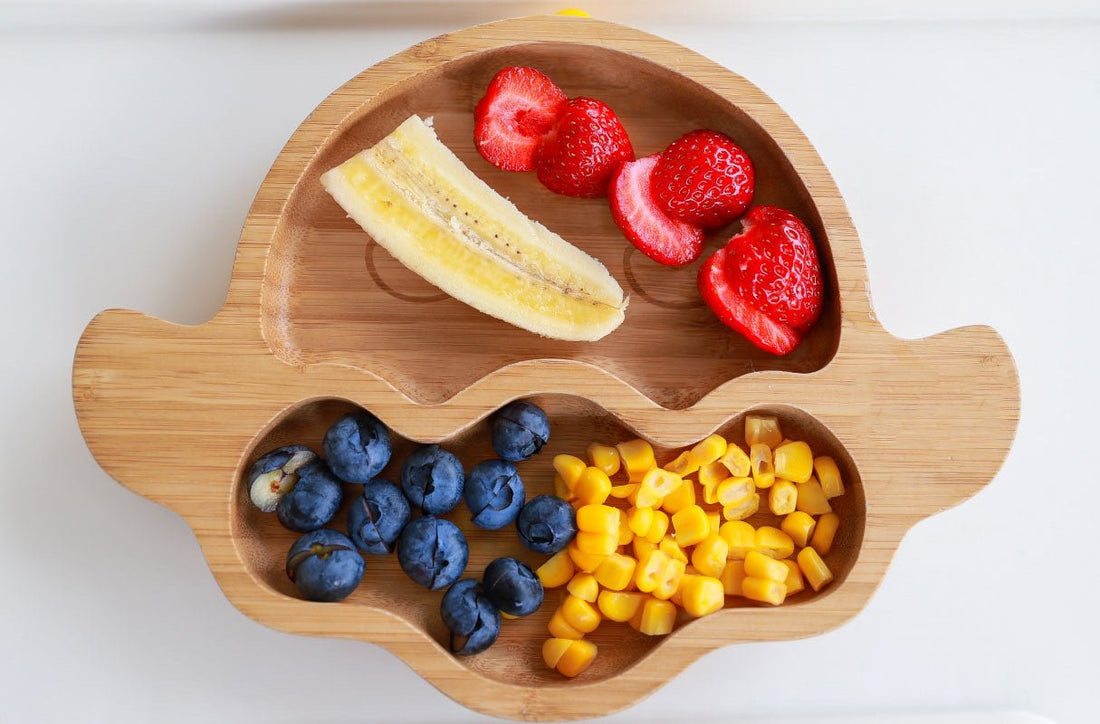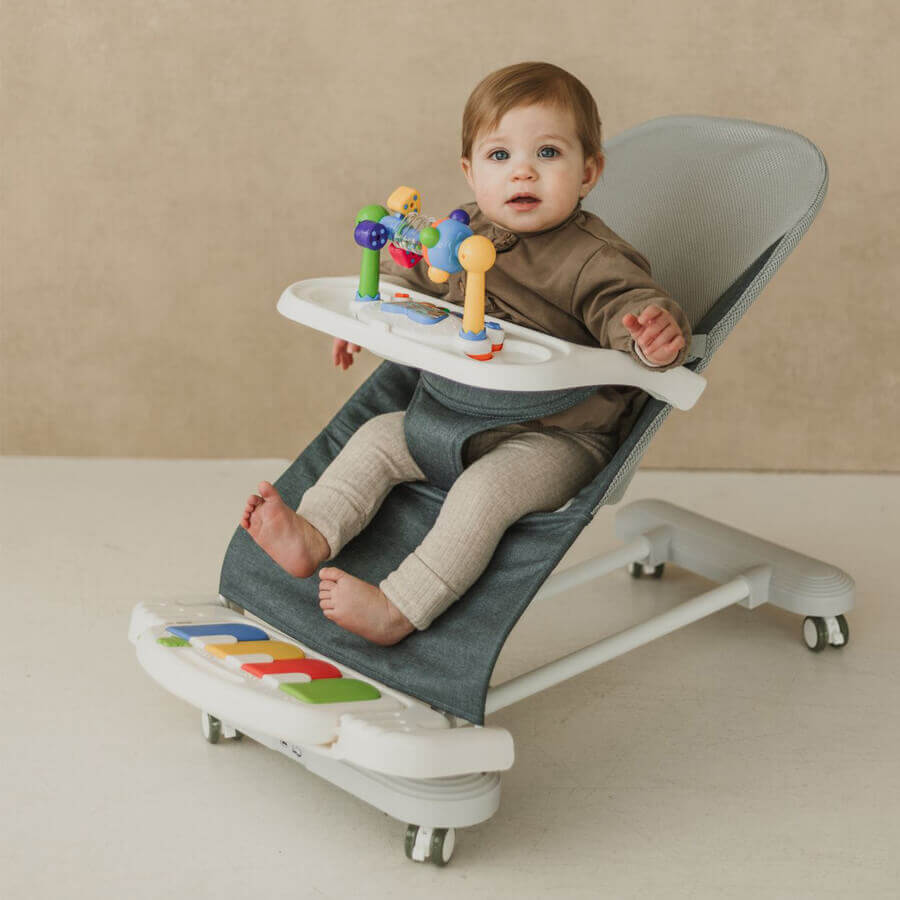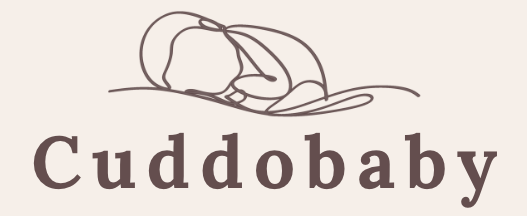
How To Introduce Snacks To Your Baby?
Share
Around 8 months old, many babies start transitioning to three meals a day. If you see other babies starting to have snacks, you might wonder: When is the right time to introduce snacks to my baby? Will it affect their main meals?

Today, let's talk about why snacks are important for your baby and how to introduce them properly.
Why give your baby snacks?
Snacks are small portions of food given between main meals, like homemade treats, fruits, veggies, or baby snacks. Even breast milk or formula outside of mealtimes counts as a snack. Typically, babies around 8 months old can start having snacks for two main reasons:
1. **Developing fine motor skills**: At this stage, babies can start picking up small items with their thumb and forefinger. Giving them finger foods like puffs or small biscuits helps improve their grasping skills.
2. **Small stomach, big energy needs**: Babies at this age have small stomachs and can’t eat or digest too much at once. However, they’re becoming more active—learning to crawl and move around—so their energy needs increase. Snacks help provide the extra nutrition and energy they need throughout the day.
How to schedule snacks?
**1. Timing:** It’s usually recommended to offer snacks in the morning, afternoon, and before bed, with 1.5–2 hours between snacks and meals. But depending on your baby’s schedule, you can adjust the number of snacks. For example, if your baby tends to fall asleep soon after dinner, you might skip the bedtime snack to avoid overloading their digestive system.
**2. Portion control:** If your baby eats too many snacks, they might lose interest in their main meals. So, it’s important to keep snacks light. But how much is "just enough"? According to the Chinese Nutrition Association, snacks should make up less than 10% of a baby’s total daily energy intake.
For example, if your 9-month-old baby weighs 10 kg, they need around 800 kcal per day. So, snacks should provide around 80 kcal in total. Here’s what that looks like:
- Half a medium dragon fruit (45 kcal) + 4 rice crackers (35 kcal)
- 3 strawberries (25 kcal) + 2 teething biscuits (55 kcal)
- 7 small cherry tomatoes (30 kcal) + half a small sweet potato (50 kcal)
You can check the calorie content of different foods online or through an app to mix and match your baby’s snacks.

What snacks are suitable for babies?
You can try a variety of homemade treats or choose natural, ready-to-eat foods or healthy baby snacks. Here are a few ideas:
- **Fruits & veggies**: Banana, apple, tomato, cucumber—anything in season
- **Starches**: Steamed purple sweet potato, yam, taro
- **Milk & dairy products**: Breast milk, formula, cow's milk (after 1 year old)
- **Baby snacks**: Rice crackers, yogurt melts, shrimp chips, seaweed snacks (Make sure to choose low-sodium, low-sugar, low-fat options).
Keep in mind:
- Babies 8–12 months old need around 600 ml of milk each day.
- For 1–2-year-olds, that decreases to about 500 ml daily.
- Avoid snacks with added sugar or salt, especially for younger babies.
As your baby grows, their eating habits will continue to change, from breast milk and purees to three meals a day with snacks in between. Pay attention to the 1.5–2 hour gap between meals and snacks, and adjust based on your baby’s eating habits and routine.
Have you started giving your baby snacks yet? What are some of their favorites? Let us know in the comments!

